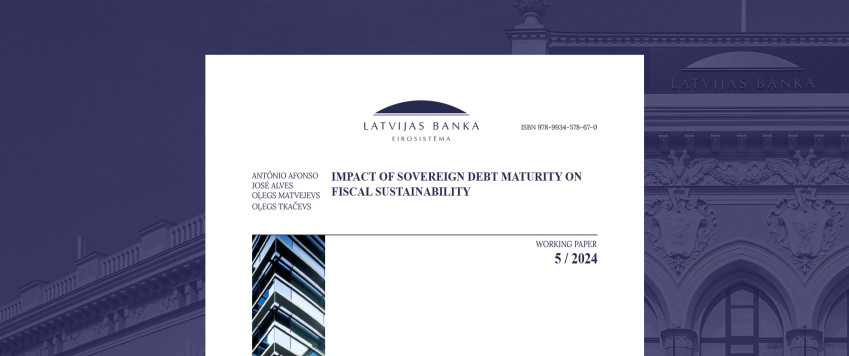Impact of sovereign debt maturity on fiscal sustainability
Working Paper 5/2024

In addition to the significant increase in the public debt ratio over the last decades, another major change has been the substantial increase in the maturity of sovereign borrowing. This study is the first to investigate the impact of the term structure of public debt on fiscal sustainability. We adopt the widely used backward-looking measure of fiscal sustainability – fiscal responsiveness as proposed by Bohn (1998). Using data from De Graeve and Mazzolini (2023) and focusing on a sample of 19 most developed countries, we demonstrate that sovereign borrowing with maturity above 10 years significantly reduces fiscal responsiveness. Conversely, public debt with maturity between 3 and 5 years, which roughly aligns with the electoral cycle in many countries, is associated with the highest responsiveness of the primary balance to public debt.
The findings indicate that the increase of long-term public debt since the beginning of this century has contributed to reducing fiscal responsiveness by half. Further analysis indicates that unconventional monetary policy, by suppressing yields at longer maturities, has likely played a key role in the discovered relationship. However, monetary easing has not been the sole factor explaining the negative impact of longer maturity of public debt on fiscal sustainability.
Keywords: fiscal sustainability, public debt, debt maturity, interest rate
JEL codes: E62, C23, H30, H62, H63
Textual error
«… …»

